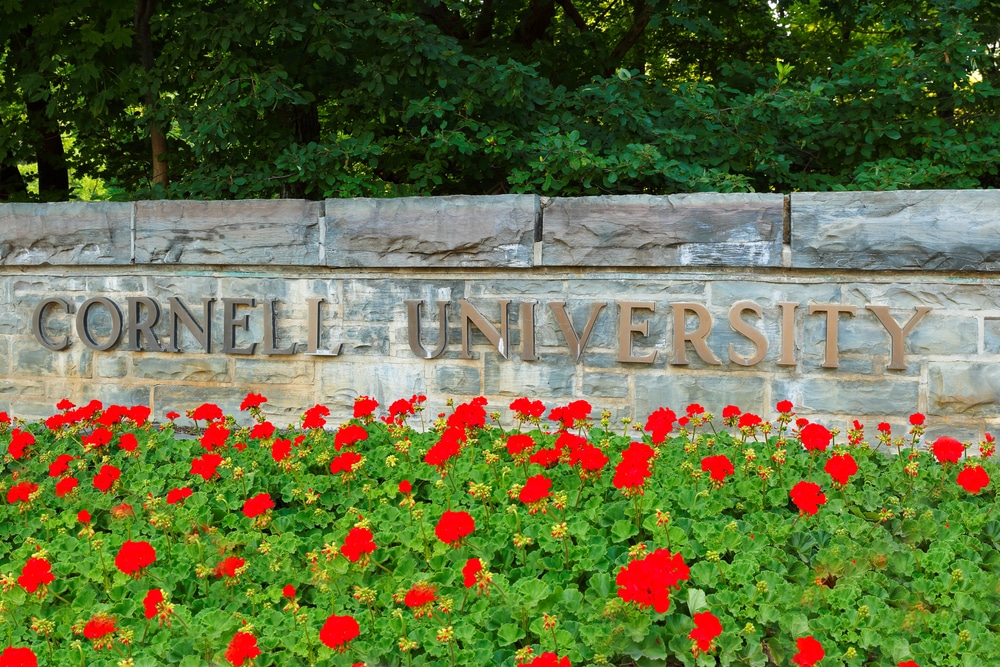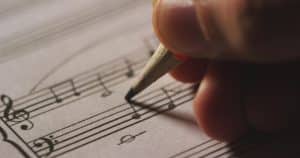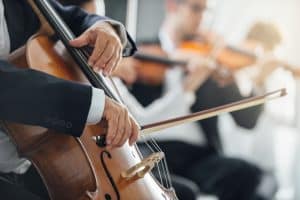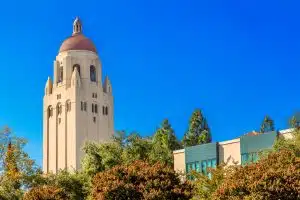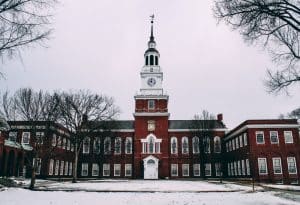Exploring Cornell’s Music Program
Dedicated to the growth and development of its students, Cornell’s music program promises a rich, fulfilling learning journey. Rooted in history and tradition yet ever-evolving with contemporary practices, the program fuels a creative learning environment.
Understanding the Basics of Cornell’s Music Program
Cornell’s music program is a cornerstone of arts education, blending a rigorous theoretical foundation with extensive practical experiences. This program upholds the belief that studying music is integral to a liberal arts education.
At Cornell, the music program is not just about learning to play an instrument or sing; it is a comprehensive and immersive experience that encompasses music’s history, theory, performance, and composition. Students have the opportunity to explore and develop their musical talents in a supportive and intellectually stimulating environment.
The History and Evolution of the Program
Cornell University’s Department of Music has long been a hub for musical scholarship, education, and performance since its early days. The university itself, founded in 1865, placed an emphasis on liberal arts education, and music became an integral part of this vision.
By the late 19th and early 20th centuries, Cornell had established courses in music theory, history, and appreciation, laying the groundwork for what would become a robust department. Over the years, the department has expanded its curriculum to encompass a wide range of musical disciplines, from Western classical traditions to world music, from historical musicology to music theory and cognition.
Cornell’s music department has always been at the forefront of integrating technology and music. This was further solidified in the 20th century with the establishment of the Cornell Electroacoustic Music Center, making it one of the pioneers in electronic and computer music research and composition.
Throughout its history, the department has hosted a plethora of distinguished faculty members and visiting artists, ensuring that students receive a diverse and comprehensive musical education. Additionally, the department has facilitated numerous performance opportunities through ensembles, orchestras, and choirs, further enriching the musical culture on campus.
Today, the music program at Cornell University remains a vibrant community, fostering scholarly inquiry and creative expression, and continuing its legacy of excellence in music education.
The Core Philosophy of the Program
The Department of Music at Cornell University offers a multifaceted approach to studying and practicing music, emphasizing both scholarship and creative work. The core philosophy of Cornell’s music program lies in developing well-rounded musicians. The program fosters creativity, intellectual curiosity, and cultural understanding by encouraging students to explore various aspects of music study, from history and theory to performance and composition.
Students in the program are exposed to a wide range of musical traditions and styles from different cultures and time periods. They learn to appreciate the diversity of musical expressions and develop a global perspective on music. This exposure enhances their musical abilities and broadens their horizons, enabling them to become more empathetic and culturally sensitive individuals.
Furthermore, the program emphasizes the importance of collaboration and interdisciplinary approaches to music-making. Students have the opportunity to work with fellow musicians, composers, dancers, and visual artists, creating innovative and boundary-pushing performances that transcend traditional artistic boundaries.
Ultimately, Cornell’s Department of Music is not just a place to learn music; it is a transformative experience that shapes students into well-rounded musicians and individuals. Through its rich history, comprehensive curriculum, and core philosophy, the program prepares students to make meaningful contributions to the world of music and beyond.
The Structure of the Cornell Music Program
Robust and diverse, the structure of the music program at Cornell empowers students to delve deep into their preferred areas of study while maintaining a broad framework of understanding.
The music program at Cornell is designed to provide students with a comprehensive education combining academic study and practical experience. The curriculum is carefully crafted to strike a balance between theoretical knowledge and hands-on learning, ensuring that students develop a well-rounded understanding of music.
Overview of the Curriculum
The curriculum begins with core music theory, history, and musicianship courses. These foundational courses lay the groundwork for students to build upon as they progress through the program. Through in-depth analysis and exploration, students gain a solid understanding of music’s historical and theoretical aspects.
In addition to the core courses, students have the opportunity to choose from a wide range of advanced electives. These electives allow students to specialize in their areas of interest and explore various aspects of music in greater depth. For example, students can choose to study ethnomusicology, which focuses on the cultural and social aspects of music, or composition, which allows students to develop their skills in creating original music.
Furthermore, the program offers courses in performance, where students can hone their skills on various instruments or as vocalists. These performance courses provide students with opportunities to showcase their talents and receive valuable feedback from experienced faculty members.
Students also have the flexibility to choose their courses according to their musical interests and career goals. Whether they want to pursue a career as a performer, composer, musicologist, ethnomusicologist, or music technologist, the program provides the necessary resources and guidance to help students achieve their goals.
Specializations and Areas of Focus
The music program at Cornell offers a range of specializations to cater to the diverse artistic ambitions of its students. One of the key areas of focus is performance. Students who choose this specialization have access to state-of-the-art practice rooms, performance spaces, and expert faculty who provide guidance and mentorship. Through rigorous training and regular performance opportunities, students develop their technical skills and stage presence, preparing them for a career as professional musicians.
Another specialization offered by the program is composition. Students who choose this path have the opportunity to work closely with renowned composers and learn the art of creating original music. They are encouraged to experiment with different styles and techniques, allowing them to develop their unique musical voice.
For those interested in the study of music history and theory, the program offers a specialization in musicology. Students in this track delve deep into music’s historical and cultural contexts, analyzing and interpreting various musical works. They have the opportunity to conduct research, write scholarly papers, and contribute to the field of musicology.
Ethnomusicology is another specialization available to students. This field focuses on the study of music in different cultural and social contexts. Students explore the rich diversity of musical traditions from around the world, gaining a deeper understanding of the role of music in different societies. They have the opportunity to conduct fieldwork, interact with musicians from various cultures, and contribute to the preservation and appreciation of global musical heritage.
Lastly, the program offers a music technology specialization, equipping students with the skills and knowledge to work with cutting-edge audio and recording technologies. Students learn about sound engineering, digital music production, and audio editing, preparing them for careers in the music industry or the field of music technology.
Overall, the Cornell music program provides students with a comprehensive and flexible education that prepares them for a wide range of musical careers. With its diverse specializations, dedicated faculty, and state-of-the-art facilities, the program empowers students to pursue their passions and excel in the world of music.
Faculty and Staff of the Cornell Music Program
The faculty and staff of Cornell’s music program are an integral part of its successful narrative. They ensure that every student receives holistic support to navigate their academic journey.
At the Cornell Department of Music, the faculty and staff are not just educators and administrators but mentors, guides, and sources of inspiration for aspiring musicians. Their vast knowledge and experience create an environment that fosters creativity, innovation, and excellence.
Over the years, the Department of Music at Cornell has been home to faculty members who are leaders in their respective fields. This includes renowned musicologists, composers, theorists, performers, ethnomusicology, and music technology experts. Many faculty members have produced influential research, publications, compositions, and recordings. Their work often appears in prestigious academic journals, music festivals, and concert halls around the world.
Beyond their research and creative endeavors, faculty members at Cornell are also committed educators. They are involved in mentoring both undergraduate and graduate students, guiding them in their academic and artistic pursuits. The faculty of the Department of Music at Cornell represents a wide range of musical traditions, methodologies, and perspectives. This diversity enriches the academic environment and offers students a broad view of the world of music.
Whether it’s the faculty members who inspire and educate or the support staff who ensure smooth operations, the Cornell Music Program is a community that thrives on collaboration and a shared love for music. Together, they create an environment where students can explore their passion, develop their skills, and embark on a lifelong journey of musical discovery.
Facilities and Resources for Students
Cornell University prides itself on providing its students with state-of-the-art facilities that cater to every musical inclination, inspiring creativity and encouraging exploration. Whether you are a budding composer, a talented instrumentalist, or a passionate music researcher, Cornell has the resources to support your musical journey.
Music Libraries and Research Centers
At Cornell, students have access to diverse collections of scores, records, and databases in the Music Library, making it an ideal space for extensive research. The library houses an extensive collection of musical works from various genres and time periods, allowing students to delve deep into their areas of interest. Additionally, dedicated research centers within the university offer unique opportunities to engage in research projects and collaborations with fellow music enthusiasts and scholars. These centers serve as knowledge and innovation hubs, fostering a vibrant intellectual community.
Imagine spending hours in the Music Library, surrounded by shelves filled with rare and valuable musical scores. As you flip through the pages of a centuries-old composition, you can’t help but feel a sense of awe and wonder. The library’s knowledgeable staff is always ready to assist you in your research, helping you navigate the vast collection and uncover hidden gems.
Practice Rooms and Performance Spaces
At Cornell, we understand the importance of practice and performance in honing your musical skills. That’s why our program offers numerous practice rooms with quality instruments for individual study. Whether you are a pianist, a violinist, or a vocalist, you can find a space where you can immerse yourself in your craft and refine your technique.
Picture yourself in one of our practice rooms, the sound of your instrument resonating through the air. As you play, you can feel the music flowing through your fingertips, each note bringing you closer to perfection. The practice rooms are designed to provide a quiet and focused environment, allowing you to concentrate fully on your music.
Cornell’s Department of Music boasts several well-equipped ensemble practice or performance venues. From intimate recital halls to grand concert spaces, these venues provide the perfect ambiance for various musical genres. Whether you are part of a chamber group, a jazz band, or a symphony orchestra, you can showcase your talent in acoustically optimized and visually stunning spaces.
Imagine standing on stage, the spotlight illuminating you as you prepare to perform. The audience eagerly awaits, their anticipation palpable. As you begin to play, the music fills the room, enveloping everyone in its beauty. The performance spaces at Cornell are not just stages; they are platforms for you to share your passion and connect with others through the universal language of music.
Opportunities Beyond the Classroom
As a Cornell music program student, the learning extends beyond the classroom, promising a dynamic and enriching musical journey.
The program provides students with opportunities for internships and work placements in a vast network of music institutions. These allow students to gain hands-on experience in the field, enhancing their career prospects.
Students are encouraged to participate in events, concerts, competitions, and festivals on and off campus. These experiences help them to enhance their performance skills, gain confidence, and network with like-minded individuals.
These opportunities signify the multifaceted nature of the Cornell Music Program, enhancing the holistic development of each student.
Conclusion
Cornell University’s music program stands as a testament to the institution’s commitment to academic rigor and artistic excellence. The program nurtures the intellect and creative spirit with a curriculum that seamlessly intertwines theory, history, performance, and composition. Backed by a faculty of esteemed scholars and practitioners, the program offers students a holistic and interdisciplinary approach to music.
This combination of rich tradition and forward-looking innovation ensures that Cornell’s music graduates are well-versed in the multifaceted world of music and equipped to shape its future. Cornell’s music program is a harmonious blend of scholarship, creativity, and global perspectives, making it a premier destination for aspiring musicians and scholars alike.
If you need help putting the finishing touches on your college applications, at AdmissionSight, we have over 10 years of experience guiding students through the competitive admissions process.
AdmissionSight can help you put your best foot forward when applying to college this fall. Contact us today for more information on our services.



